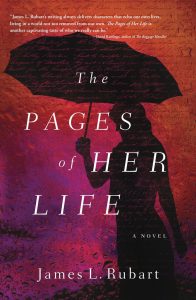by James L. Rubart, @jameslrubart

You want to strengthen your writing, yes? You want to write good?
Then let us glean the wisdom of author William Safire who published (most of) the following list in the New York Times in 1979:
- Verbs has to agree with their subjects.
- Prepositions are not words to end sentences with.
- And don’t start a sentence with a conjunction.
- Also, always avoid annoying alliteration.
- Be more or less specific.
- Parenthetical remarks (however relevant) are (usually) unnecessary.
- Also too, never, ever use repetitive redundancies.
- No sentence fragments.
- Contractions aren’t necessary and shouldn’t be used.
- Foreign words and phrases are not apropos.
- Do not be redundant; do not use more words than necessary; it’s highly superfluous.
- Don’t use no double negatives.
- Eschew ampersands & abbreviations, etc.
- One-word sentences? Eliminate.

- Eliminate commas, that are, not necessary. Parenthetical words however should be enclosed in commas.
- Never use a big word when a diminutive one would suffice.
- Understatement is always the absolute best way to put forth earth shaking ideas.
- Eliminate quotations. As Ralph Waldo Emerson said, “I hate quotations. Tell me what you know.”
- Go around the barn at high noon to avoid colloquialisms.
- Who needs rhetorical questions?
- Do not put statements in the negative form.
- Take the bull by the hand and avoid mixing metaphors.
- Be careful to use the rite homonym. And finally…
- Proofread carefully to see if you any words out.
Yes, I did use “good” at the start of this post on purpose and realize it’s incorrect. But I do appreciate your attentiveness.

How Do You Stand Up for Yourself When It Means Losing Everything? Allison Moore is making it. Barely. The Seattle architecture firm she started with her best friend is struggling, but at least they’re free from the games played by the corporate world. She’s gotten over her divorce. And while her dad’s recent passing is tough, their relationship had never been easy. Then the bomb drops. Her dad was living a secret life and left her mom in massive debt. As Allison scrambles to help her mom find a way out, she’s given a journal, anonymously, during a visit to her favorite coffee shop. The pressure to rescue her mom mounts, and Allison pours her fears and heartache into the journal. But then the unexplainable happens. The words in the journal, her words, begin to disappear. And new ones fill the empty spaces—words that force her to look at everything she knows about herself in a new light. Ignoring those words could cost her everything . . . but so could embracing them.

James L. Rubart is 28 years old, but lives trapped inside an older man’s body. He thinks he’s still young enough to water ski like a madman and dirt bike with his two grown sons. He’s the best-selling, Christy BOOK of the YEAR, CAROL, INSPY, and RT Book Reviews award winning author of ten novels and loves to send readers on journeys they’ll remember months after they finish one of his stories. He’s also a branding expert, audiobook narrator, co-host of the Novel Marketing podcast, and co-founder with his son, Taylor, of the Rubart Writing Academy. He lives with his amazing wife on a small lake in Washington state.
Comments 1
After the first bullet, if not before, we knows your ‘good’ intentioned.